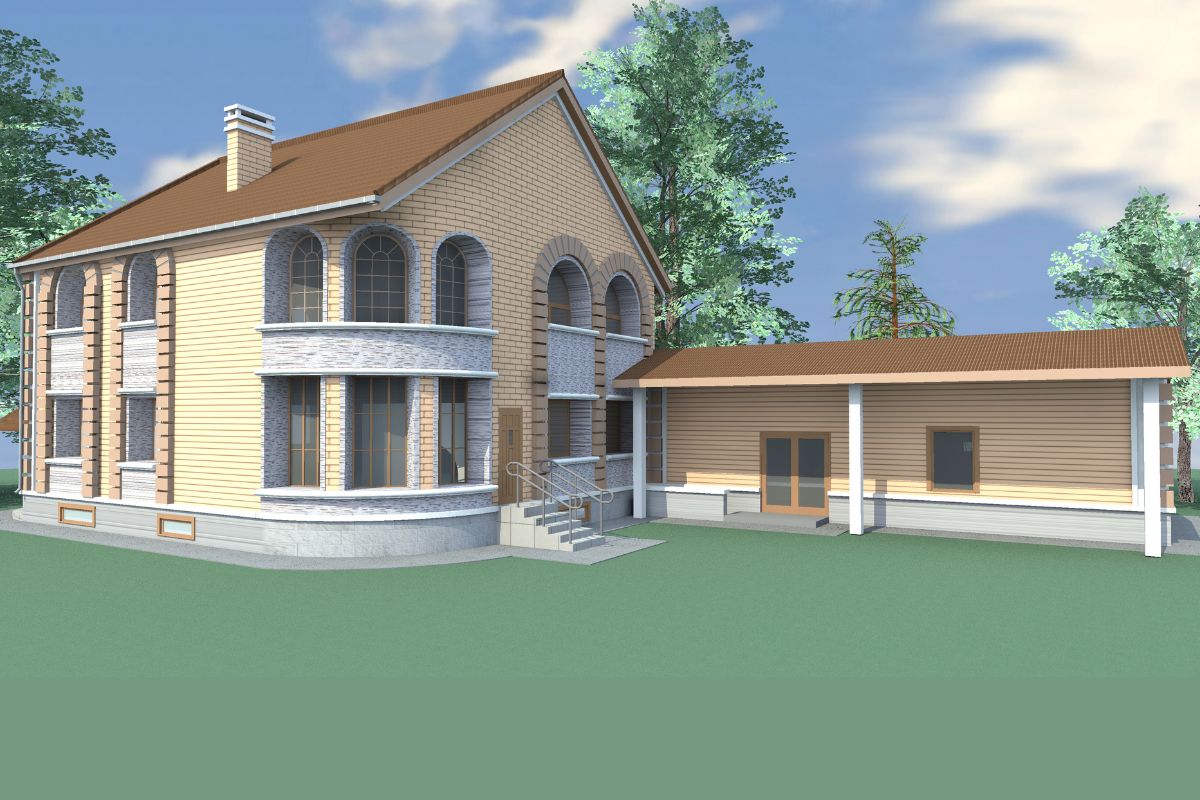Living with several generations is becoming more and more common in today’s world. The need for flexible living spaces is growing, whether it is from young adults returning home from college, parents moving in with their adult children or families wanting to maintain privacy while remaining close.
Adding an annexe to an existing property is one of the best ways to handle this growing trend. An ideal balance between solitude and closeness can be found in an annexe for families that want to help each other through all phases of life.
This blog discusses the benefits of designing an annexe as a multigenerational home and provides helpful guidance on how to create these surroundings that are practical, fashionable, and cozy.
Understanding the Benefits of Multi-Generational Living
Before diving into the specifics of constructing an annexe, it’s important to understand the numerous benefits that multi-generational living can offer:
Economic Efficiency
Sharing a property can significantly reduce living costs for all parties. Expenses like utilities, maintenance, and mortgage payments can be shared, easing financial burdens.
Enhanced Family Support
Having family members close by facilitates easier caregiving for the young and old. This setup can be especially beneficial for childcare, eldercare, or during recuperation from illness. Stronger Family Bonds: Living close to one another encourages consistent communication and fortifies family ties, giving residents a feeling of security and belonging.
Planning Your Annexe
Creating a multi-generational annexe involves careful planning to ensure that the space meets the needs of all family members. Here are some key considerations:
Legal and Planning Requirements
Before beginning any construction, check the local zoning laws and building regulations. You may need planning permission to build or convert a space into an annexe, particularly if it includes complete living facilities such as a kitchen and bathroom.
Accessibility
Design the annexe to be accessible for all ages and abilities. Features like wide doorways, ramps instead of steps, and walk-in showers can make a big difference in usability, especially for elderly family members.
Privacy
While the idea is to live close, it’s important to design the space to ensure privacy. Separate entrances and soundproofing can help maintain a sense of individuality and personal space.
Designing the Annexe
A well-designed annexe should be both functional and welcoming. Here are some design tips to consider:
Layout
Opt for an open plan layout to make the space feel larger and more versatile. However, clearly define areas for sleeping, living, and dining to ensure that the annexe functions as a complete home.
Light and ventilation
Maximize natural light and ventilation to make the annexe feel airy and pleasant. Consider large windows or skylights and ensure there is adequate airflow throughout the space.
Storage Solutions
Smart storage solutions are crucial in smaller spaces. Built-in cabinets, multi-functional furniture, and clever use of vertical space can help keep the annexe uncluttered and organized.
Equipping the Annexe
Equipping the annexe with the right amenities will ensure comfort and independence for its occupants.
Kitchen Facilities
Even if main meals are shared with the family in the main house, having kitchenette facilities in the annexe allows for independence with morning coffees or late-night snacks.
Bathroom Features
Equip the bathroom with safety features such as grab bars and non-slip surfaces, especially if older adults will use the space.
Comfort and decor
To make the annexe feel like home, choose cozy furniture and add unique touches to the décor. The room can be transformed from purely practical to genuinely delightful with the addition of soft furniture, artwork, and personal belongings.
Technology Integration
Incorporating technology can greatly enhance the functionality and safety of the annexe.
Communication Systems
Install systems that allow easy communication between the annexe and the main house. This could be as simple as having intercoms or as advanced as smart home systems.
Security and Monitoring
Security cameras and motion sensors can provide peace of mind, particularly for monitoring elderly relatives. However, it’s important to balance security with privacy.
Smart Home Features
Smart lighting, heating controls, and window treatments can provide convenience and energy efficiency.
The emotional aspect
Building an annexe for multi-generational living is not just a physical project but an emotional one too. It’s essential to have open discussions with all family members about expectations, boundaries, and how to handle everyday interactions. Clear communication and agreed-upon rules can help prevent conflicts and ensure that the living arrangement is successful for everyone involved.
An annexe offers a fantastic solution for families looking to embrace multi-generational living without sacrificing privacy or independence. By carefully planning, designing, and equipping the space, you can create a comfortable and functional home that brings your family closer while still respecting the personal space of each member.
With the right approach, an annexe can provide economic benefits and emotional support. It can also foster a sense of togetherness and unity among family members, creating a more supportive and loving environment.
Additionally, having an annexe allows for easier care and assistance for older family members who may need extra support. Overall, with the proper consideration and effort put into the living arrangement, an annexe can greatly enhance the quality of life for all family members involved.













